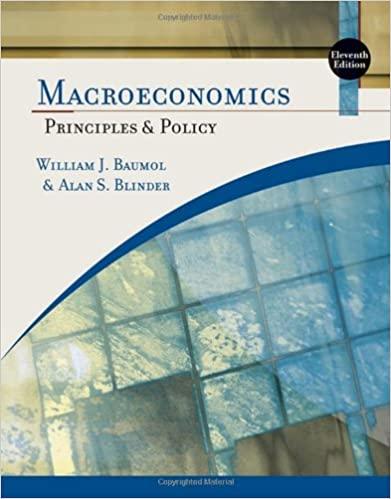Question
Question 1 In order to study the amounts owed to the city council, a city clerk takes a random sample of 16 accounts from a
Question 1
In order to study the amounts owed to the city council, a city clerk takes a random sample of 16 accounts from a large number of delinquent accounts and finds the average amount owed to the city to be $250.
It has been claimed that the true mean amount owed on accounts of this type is greater than $250. If it is appropriate to assume that the amount owed is a normally distributed random variable with a standard deviation of $33, then the value of the test statistic appropriate for testing the claim is: (Your answer should be correct to two decimal places.)
Question 2
Which of the following statements is correct?
a. The larger the p-value, the stronger the evidence against the null hypothesis
b. An extremely small p-value indicates that the actual data differs markedly from that expected if the null hypothesis were true
c. The p-value measures the probability that the hypothesis is true
d. The p-value measures the probability of making a Type II error
Question 3
The Sydney Airport Commission set a performance target of 26 minutes for the time taken for passengers to claim their luggage at domestic terminals.
In order to monitor performance a study was conducted by taking a random sample of 200 passengers disembarking from Sydney airport.
If the study found a p-value of 0.5 what was the sample mean time taken by passengers to claim their luggage? (Your answer should be correct to one decimal place.)
Question 4
You conduct a statistical study in order to test whether a new training program has led to any change in performance or not.
The p-value of the test turns out to be 0.10.
This implies that for any significance level below 10% you would not reject the null hypothesis of no change.
a. True
b. False
Question 5
In a simple linear regression you are told that the estimate of the slope coefficient was 0.5 and that the "t-statistic" for testing whether the slope parameter was unity or not was-2.3.
What is the estimated standard error for the estimated slope coefficient? (The answer should be correct to two decimal places.)
Question 6
If the R-squared for a regression model relating the outcome y to an explanatory variable x is 0.9. This implies that there is a positive linear relationship between y and x.
a. True
b. False
Question 7
Using a sample of recent university graduates, you estimate a simple linear regression using initial annual salary as the dependent variable and the graduate's weighted average mark (WAM) as the explanatory variable.
If the regression model has an estimated intercept of 3200 and an estimated slope coefficient of 550, what is the predicted starting salary of a student with a WAM of 63?
Question 8
At the end of the semester the lecturer runs a regression using the student's final grade as the dependent variable and a male dummy (equals one if the student is male and equals zero otherwise) as the sole explanatory variable.
If the estimated intercept is 63 and the estimated coefficient on the male dummy is 3 then what is the estimated mean mark for males in this course?
Question 9
In a multiple regression setting which of the following statements is NOT correct?
a. As you add more explanatory variables the regression R-squared will not fall and typically will increase.
b. Suppose you are interested in the relationship between food consumption and level of household income. Even though your primary interest is in the consumption-income relationship it is good practice to add in other explanatory variables such as household size in order to avoid problems of confoundment.
c. The estimated intercept is the predicted outcome when all explanatory variables are set to zero.
d. The standard error of the estimate needs to be large for a multiple regression model to be valid.
Question 10
This is the last feedback question for the term.
a. True
b. False
Step by Step Solution
There are 3 Steps involved in it
Step: 1

Get Instant Access to Expert-Tailored Solutions
See step-by-step solutions with expert insights and AI powered tools for academic success
Step: 2

Step: 3

Ace Your Homework with AI
Get the answers you need in no time with our AI-driven, step-by-step assistance
Get Started


